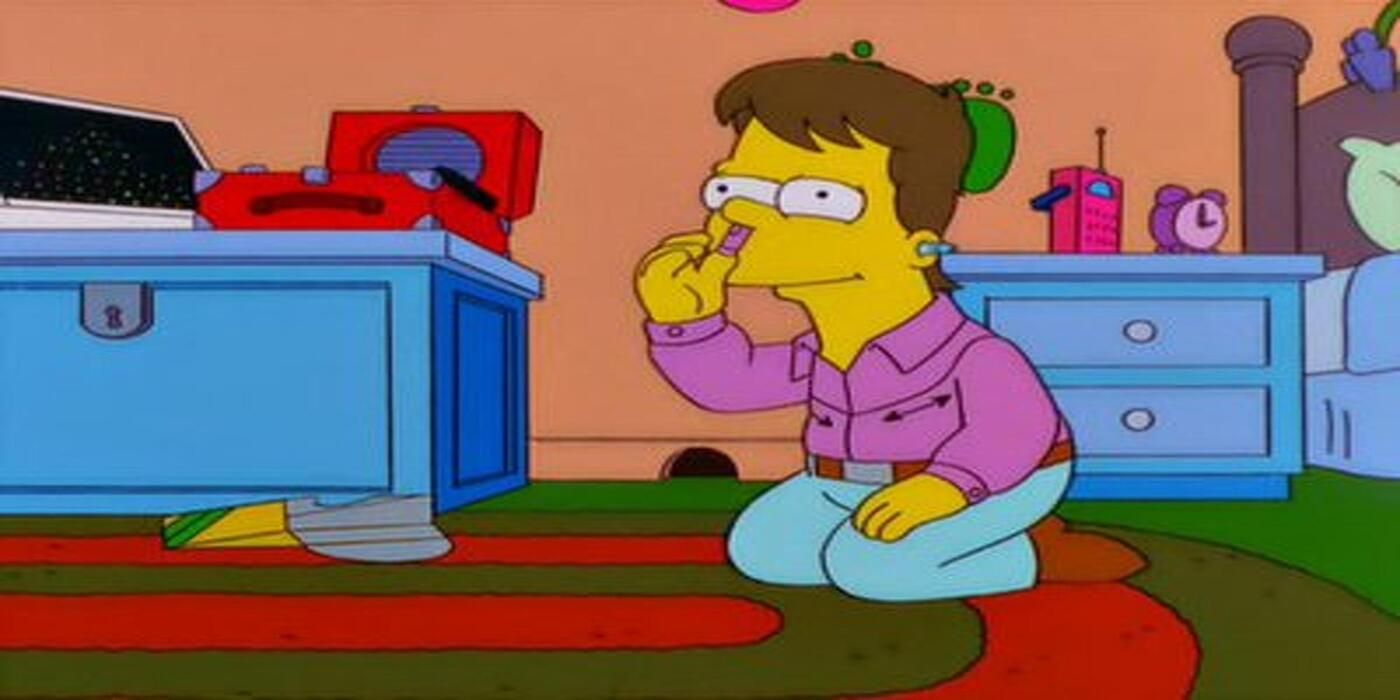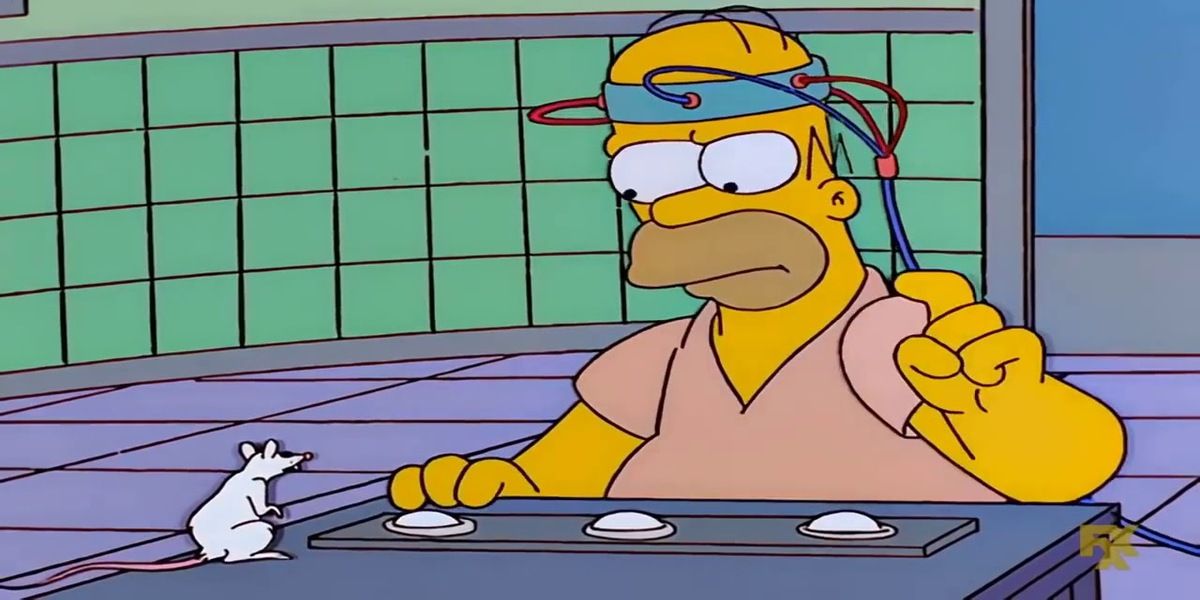Homer Simpson is one ot TV’s most enduring and beloved characters. His boorish, uncouth behavior — counter-balanced by a good heart and genuine love of his family — has endeared him to audiences for more than 30 years. Since the show first aired, viewers have enjoyed watching his foolish antics ranging from the grotesque (continuing to eat a giant sandwich months after turned rotten) to the absolutely insane (polluting Lake Springfield and causing the entire town to be covered by a dome). One episode in the series sheds light on why Homer acts the way he does and, in just 25 short minutes, turns everything from outrageously amusing to horribly unfunny and sad.
The series has had its share of controversial episodes, but “HOMR” (with the “R” written backwards) remains a standout. In the Season 12 episode, Homer becomes a medical guinea pig in order to earn money after losing his life savings in a failed animation company. During the testing, doctors discover that his stupidity is the result of a childhood accident. When Homer was little, he decided to see how many crayons he could fit inside his nose. One crayon remained lodged in his brain, thereby lowering his IQ. The doctors offer to remove the crayon, and when they do, Homer’s intelligence goes up considerably.
With his newly-gained prowess, Homer approaches the world with an altered perspective. He wins over the students at Springfield Elementary with an intelligent speech and becomes a more productive worker at his job. Most importantly, he develops a bond with his daughter Lisa, whose high IQ has often created a barrier between her and her father. But Homer quickly learns that intelligence doesn’t equal happiness.
His report on the nuclear power plant’s safety causes the plant to be shut down and all of his peers to be laid off. It also alienates him from his friends at Moe’s Tavern, who feel that Homer is now looking down on them because of his intellect. In the end, he opts to have the crayon reinserted (courtesy of a back alley operation from Moe) and revert to his old, comparatively witless self. Lisa is devastated at the decision, but warmed slightly by a heartfelt letter left behind saying how much Homer admires his daughter’s intelligence.
Upon its release, “HOMR” received critical acclaim for its poignancy and heartfelt message. The episode took home the Emmy Award for Outstanding Animated Program (Programming Less Than One Hour). It routinely makes critics’ “best of” lists when naming the series’ high points. However, for all its accolades, the episode’s proponents fail to realize the uncomfortable truth it reveals. In every episode that has come before and after “HOMR,” audiences have been pointing and laughing at a man with a brain injury.
Prior to “HOMR,” laughing at Homer Simpson was an easy, natural thing to do. He was an oafish, self-centered lout, focused on his own want and desires and driven completely by impulse and id-fueled need. Every time he drooled over donuts, tumbled down a cliff (or a flight of stairs) or smacked himself in the head with a light bulb, viewers could point in amusement and chuckle as the imbecile got what was coming to him. But in light of the episode’s revelations, it’s hard not to feel uncomfortable in those moments, given that the laughter comes at the expense of a mentally disabled person.
Taken on its own merits, “HOMR” is a well-done episode of The Simpsons. It’s well-written and presents a touching, heartfelt look at the emotional and intellectual divide that exists between Lisa and the other members of the Simpson family. However, when seen in the context of the larger series, it’s hard to justify the damage it does to Homer’s character and the reasoning behind its actions.
Perhaps the best way to enjoy it is to imagine that it takes place outside Simpsons canon, similar to the Halloween “Treehouse of Horror” installments. Although the episode is still canon, the producers have disavowed an installment before and could do so again. Until that time, and as long as “HOMR” remains a part of official Simpsons lore, laughing at Homer’s idiocy will sometimes feel more like mockery.
The Simpsons is currently streaming on Disney+.



